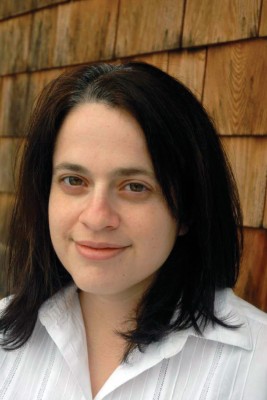
Eden King won an award for teaching. Courtesy photo.
George Mason University psychology professor Eden King will receive the 2011 Virginia Outstanding Faculty Award. The award is the highest honor for faculty at Virginia colleges and universities.
“I don’t feel like this award belongs to me,” King said. “I feel like it belongs to my students and my colleagues and my mentor from grad school. I wouldn’t be anywhere without them.”
King said she feels indebted to colleagues in her program, Industrial and Organizational Psychology, at Mason.
“I probably wouldn’t even have a job if it weren’t for all these people,” King said.
King came to Mason after earning her doctorate from Rice University in 2006.
“[Mason] is a really interesting place to be,” King said. “I was very excited by the offer. It was definitely an exciting job opportunity for me because of first and foremost the program here at Mason is really well respected.”
King said she was pleased to discover the diversity in the undergraduate population.
“Mason is a place where it’s still figuring out what it’s going to be,” King said. “Rather than being at a place where all the traditions are already set.”
King said she specializes in industrial organization psychology and is interested in understanding people in the context of the workplace.
“I think the stuff that’s most interesting to people is where I’ve looked to see how people who have stigmas are treated when they apply for jobs,” King said.
King said she has asked experimenters to go out and apply for jobs. In some cases, the applicants were made to wear something that makes them look like a stigmatized person.
“In one study, we had women apply for jobs and they either wore traditional American clothes or wore a hijab and an abaya to appear to be a Muslim. We were interested in seeing how they were treated.”
King said the Muslim women were treated negatively.
“I’ve always felt compelled by social justice concerns,” King said. “I hadn’t given it a lot of thought until I was asked to apply for this award. They asked me to reflect on my chosen discipline, and what I figured out in that reflection is that I learned from my parents very early on that being different from everybody else doesn’t mean you’re less than anybody else.”
King said her father has a physicall disability which helpedframe her thinking.
“It never seemed weird to me because he always had it,” King said. “He never seemed less than anybody else.”
Much of King’s work deals with problems in organizational settings. She said organizations are struggling to figure out effective strategies for managing diversity and that she is working on a diversity training program.
“The overarching goal is to make the world a better place,” King said.
King wrote a book with a friend called “How Women Can Make It Work: The Science of Success.” The book is written for young women and is trying to translate social science research findings in a way that women can find useful.
King said the book discusses things such as negotiation strategies in the context of TV shows, music and pop culture that try to make it more relevant to young women. She said she would like to write more in this genre.
“I have not mastered it yet because it’s very different than academic writing,” King said. “I definitely need more practice. I think that it would be very fun and fulfilling to do more of that.”
King said the ability to translate what is learned in science to people who aren’t scientists is very important.
“It’s hard to do,” King said. “I haven’t figured out how to do it entirely.”
King works directly with five graduate students whose projects are listed on a markerboard in her office.
“One of my students is very interested in how younger and older people see each other in the workplace,” King said. “One of my other students is very interested in how people perceive ethnic minority leaders.”






Comments